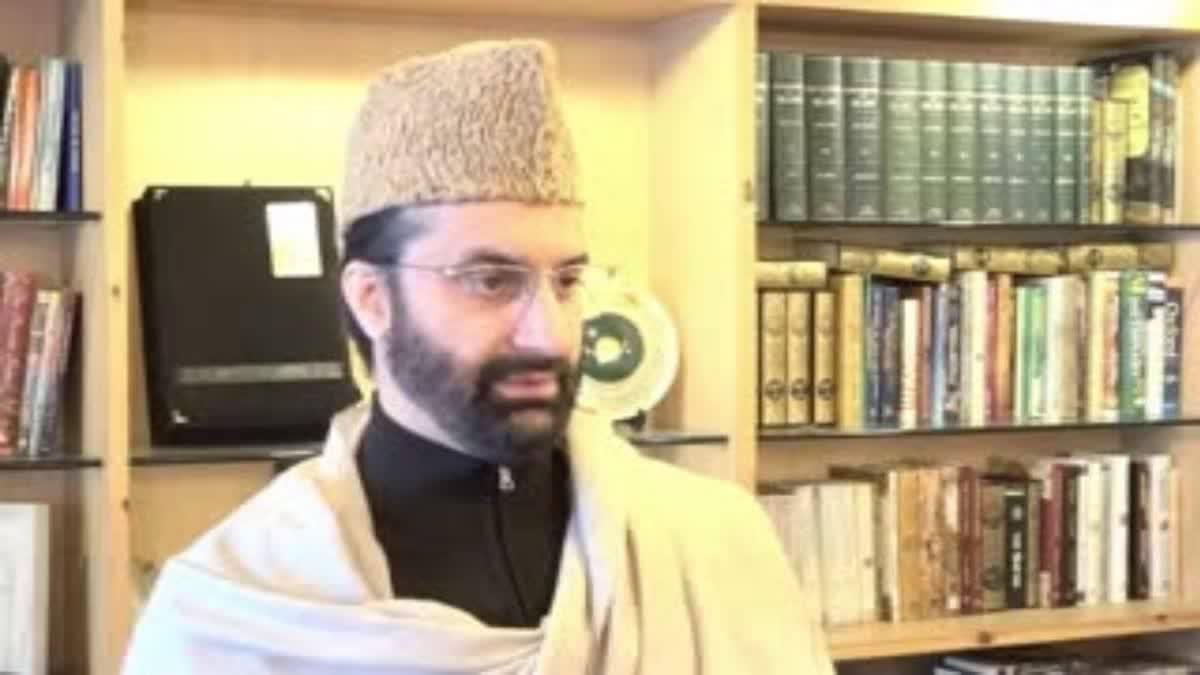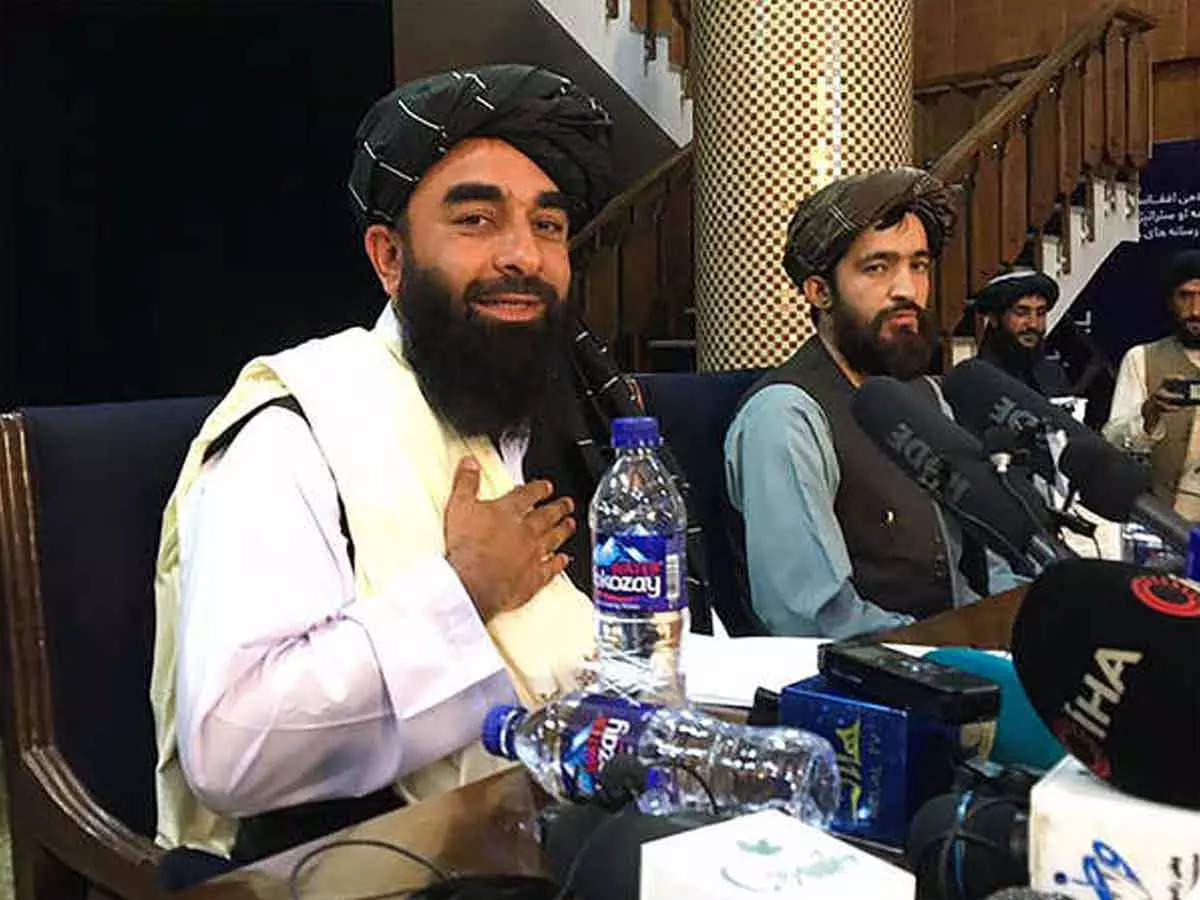Mirwaiz Slams ‘Relentless Interference’ in Religious Affairs
By: Javid Amin | 12 September 2025
A Friday Without the Pulpit
For centuries, Srinagar’s Jamia Masjid has been more than a mosque—it has been a symbol of Kashmir’s soul, where religion, politics, and public life intersect. On Fridays, the pulpit of Jamia has echoed not only with sermons but also with the collective conscience of Kashmiris.
Yet on another Friday in 2025, that pulpit stood empty. Mirwaiz Umar Farooq, Kashmir’s chief cleric and chairman of the Hurriyat Conference, alleged he was locked inside his residence in Nigeen, unable to lead prayers or deliver his sermon.
“Our human and political rights already stand denied. Now even our religious rights are being trampled at will.” — Mirwaiz Umar Farooq
The allegation is not new. For years, Mirwaiz has complained of being intermittently confined, silenced, or barred from his religious duties. But this time, the context is sharper: controversies over the Hazratbal emblem plaque, growing state control over Waqf affairs, and the passage of the Waqf Amendment Act 2025 have inflamed debates over religious freedom, autonomy, and identity in Kashmir.
House Arrest Allegations: Locked Away From His Flock
The Pattern of Restrictions
Mirwaiz stated that on Friday morning, security forces locked the gates of his residence, preventing him from attending prayers at Jamia Masjid.
This pattern has repeated countless times since August 5, 2019, when Article 370 was abrogated and J&K’s special status revoked. While officials often describe it as a “preventive measure”, for Mirwaiz’s followers it is nothing less than a violation of religious freedom.
-
Jamia Masjid closures have become routine on politically sensitive days.
-
Sermons by Mirwaiz are often curtailed, edited, or outright banned.
-
Security forces maintain a visible presence around mosques and shrines on Fridays, creating an atmosphere of fear.
Public Sentiment
In downtown Srinagar, locals describe it as “religion under siege”. Worshippers are left to pray without their traditional leader, while the silence of the pulpit amplifies feelings of loss and humiliation.
Religious Restrictions Beyond the Jamia Masjid
Mirwaiz accused authorities of “relentless interference in religious affairs”. His statement listed several forms of curbs:
-
Blocking Religious Functions:
-
Majlis gatherings, Milad-un-Nabi events, and Ashura processions face bans or heavy restrictions.
-
-
Silencing Over Hazratbal Emblem Controversy:
-
The installation of a government emblem plaque at the Hazratbal shrine drew outrage, with clerics calling it disrespectful.
-
According to Mirwaiz, even voicing criticism of the incident is treated as subversive.
-
-
Control Over Muslim Calendar & Holidays:
-
Reports suggest state interference in declaring Eid dates and regulating Islamic calendar observances.
-
-
Waqf Affairs:
-
The Waqf Amendment Act 2025 has effectively stripped Muslim bodies of exclusive control over religious endowments.
-
Religious Leaders React
For clerics and local imams, these interventions feel like an attempt to “re-engineer Kashmiri Islam” by weakening its independence and placing religious institutions under bureaucratic control.
MMU Resolution: Rejecting the Waqf Amendment Act 2025
The Mutahida Majlis-e-Ulama (MMU)—a coalition of religious organizations led by Mirwaiz—convened to discuss the growing crisis.
Their resolution bluntly rejected the Waqf Amendment Act 2025, citing:
-
Dilution of Muslim Autonomy: By appointing non-Muslims to key positions, the Act undermines the historical Muslim character of Waqf management.
-
Loss of Local Control: Endowments that funded mosques, schools, and community welfare are now overseen by bureaucrats.
-
Religious Interference: The Act allows the government to dictate usage of Waqf funds, shifting them away from community priorities.
The MMU’s stand reflects a rare moment of unity among otherwise fragmented religious bodies, underscoring the depth of concern.
The Hazratbal Plaque Controversy: Faith and Identity Collide
The backdrop to this unrest includes the Hazratbal shrine emblem incident, where a government plaque featuring the Ashoka emblem was installed at the entrance of one of Kashmir’s holiest shrines.
-
Many worshippers saw it as a profanation of sacred space, a mixing of state symbols with religious sanctity.
-
Critics argue it reflects a larger project to assert central authority over Kashmiri identity and religion.
-
Mirwaiz and others condemned the move as insensitive and provocative, yet protests against it were reportedly suppressed.
For Kashmiris, Hazratbal is not just a shrine—it houses a relic of Prophet Muhammad (PBUH). Any perceived insult carries profound emotional weight.
Mirwaiz’s Stand: From Religion to Rights
Mirwaiz has consistently framed these restrictions as part of a larger denial of Kashmiri rights.
-
Political Rights Denied: Since 2019, mainstream and separatist politics alike have faced crackdowns.
-
Human Rights Curtailed: Internet shutdowns, preventive detentions, and protest bans have become routine.
-
Religious Rights Undermined: Now, even the ability to pray freely is being questioned.
“Our human and political rights already stand denied. Now even our religious rights are being trampled at will.”
For Mirwaiz, the pulpit of Jamia Masjid is not merely about sermons—it is about asserting Kashmiri identity, autonomy, and dignity.
Constitutional Dimensions: Article 25 vs. Security Concerns
The right to freely practice religion is guaranteed under Article 25 of the Indian Constitution. Yet in Kashmir, this right is constantly weighed against security considerations.
Authorities Argue:
-
Restrictions are necessary to prevent law-and-order issues.
-
Friday prayers at Jamia Masjid often draw political slogans and protests.
Critics Respond:
-
Security cannot be an excuse for indefinite denial of religious freedoms.
-
Preventing clerics from sermons sets a dangerous precedent for religious autonomy in India.
This tug-of-war between constitutional guarantees and executive power lies at the heart of the controversy.
Historical Parallels: Jamia Masjid as a Battleground
The Jamia Masjid has long been a site of confrontation:
-
1960s–70s: Political speeches alongside sermons made it a hub of dissent.
-
1990s: Mosque often shut during the peak of militancy and crackdowns.
-
2019 onwards: Post-Article 370, the pulpit has been systematically muted.
In each era, the closing of Jamia Masjid has symbolized a wider closure of democratic space in Kashmir.
Reactions Beyond Kashmir
The story has resonated outside the Valley too:
-
Human rights groups have flagged concerns over “criminalization of religious freedom.”
-
Legal experts argue the Waqf Amendment Act violates minority rights protections.
-
Opposition parties in India accuse the government of “turning Kashmir into a laboratory for authoritarian experiments.”
-
Global Islamic organizations are watching closely, though official international responses remain muted.
What Lies Ahead?
Three Key Questions
-
Will Mirwaiz be allowed regular access to Jamia Masjid?
-
Will the Waqf Amendment Act face legal challenges in court?
-
Will religious freedom become the next frontline in Kashmir’s autonomy debate?
Possible Scenarios
-
If curbs continue, resentment could deepen, further alienating communities.
-
If negotiations or partial rollbacks occur, a fragile trust may be restored.
-
But the cumulative trend since 2019 suggests greater centralization, not accommodation.
Conclusion: Faith Behind Locked Doors
The image of Jamia Masjid’s silent pulpit, and of Mirwaiz Umar Farooq locked in his residence, encapsulates the larger story of post-2019 Kashmir: a people stripped of political voice, and now struggling to hold onto their religious autonomy.
What is at stake is not just one cleric’s freedom, but the collective right of a community to practice faith without interference.
For Kashmiris, the call of the mosque has always been tied to the call for dignity. Each Friday that passes without Mirwaiz at Jamia Masjid is a reminder that in the Valley, even prayer has become political.



